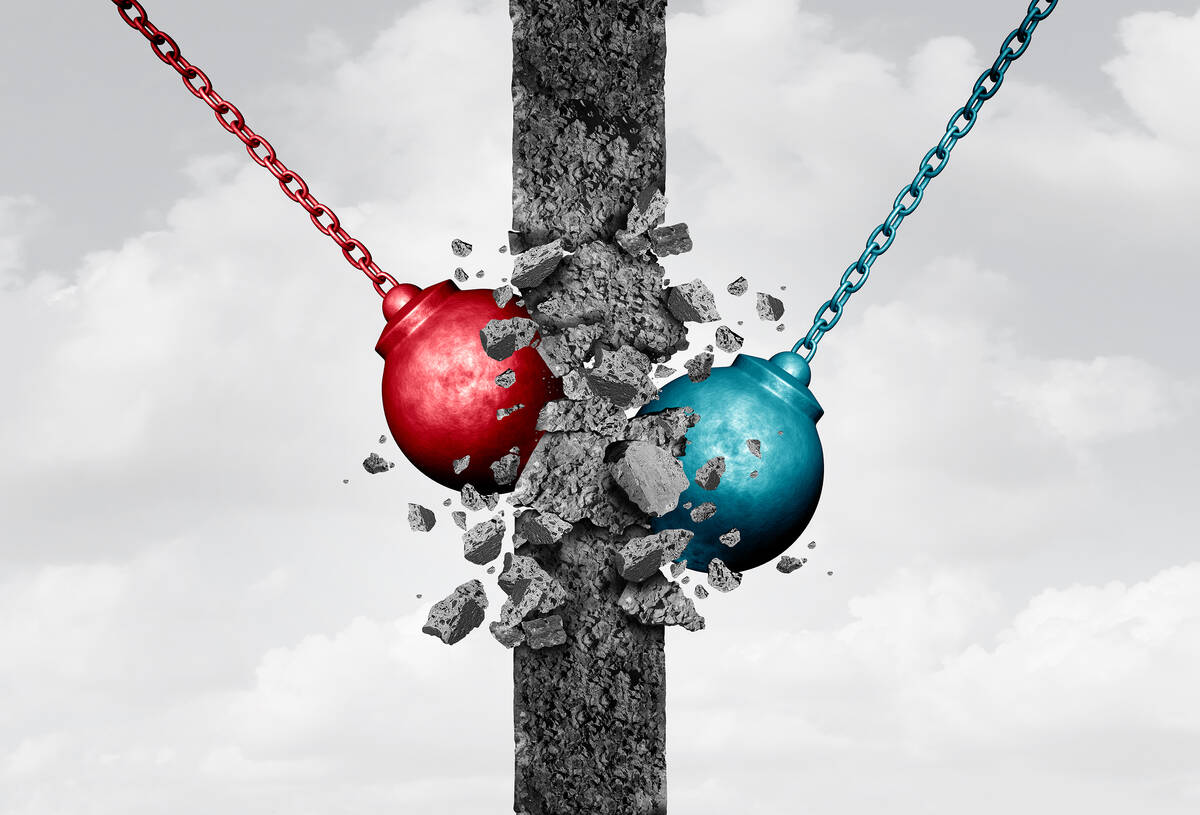COMMENTARY: Think the ’24 election Is ugly? 1828 says ‘hold my beer’
Brace yourself, America. 2024’s “Biden-Trump II: Grumpier Old Men” is showing all the signs of being an especially ugly election. At ages 81 and 77, respectively, this will be the last election for both, meaning they have nothing left to lose. And let’s face it, the two just don’t like each other.
Many people wonder if 2024 will be the nastiest presidential election in American history. To which the 1828 election says, “Hold my beer.”
While this year’s contest will be anything but the enlightened, issues-oriented national debate the Founding Fathers intended our elections to be, it will have to shift into overdrive to surpass the sheer savagery of John Quincy Adams versus Andrew Jackson.
The story begins 200 years ago. The 1824 election was a political prizefight between two heavyweight contenders. Adams was the son of a president (and a prominent Founding Father, to boot), a former congressman, senator, ambassador to Russia and Great Britain, and secretary of state. To put it in modern terms, he was the establishment candidate.
Then there was Jackson — a military hero (victor of the famous Battle of New Orleans), plus a former congressman and senator. More than that, he was the driving figure in a new push for increased democracy in the election progress. He was the insurgent candidate. House Speaker Henry Clay and Treasury Secretary William Crawford also ran, fracturing the Electoral College vote.
Adams and Jackson campaigned with everything they had. Nobody won a majority of the Electoral College votes, sending the contest to the House of Representatives, which elected Adams on Feb. 9, 1825. That was a shocker to Jackson, who truly believed the House wanted him.
But the real bombshell quickly followed when Adams picked Clay to be his secretary of state. It was considered the most prestigious job in the Cabinet. Jackson squealed in outrage like a scalded hog, arguing the appointment proved the election had been stolen from him. (Sound familiar?)
Jackson called it the “Corrupt Bargain” and vowed revenge.
So when 1828 rolled around, Adams and Jackson went at each other once more, this time with the ferocity of wild animals.
Jackson claimed that while Adams had served in Russia, he secretly pimped for Czar Alexander I and arranged for a young girl to be his prostitute. He also alleged that Adams not only put a pool table in the White House — shocking to the sensibilities of 1828 — but he even had the government pay for it.
The Adams campaign hit back just as hard. It dredged up an embarrassing incident from Jackson’s marriage. Wife Rachel was married to a Kentuckian whom historians believe was cruel at best and abusive at worst. The couple separated in 1789. Jackson fell head over heels in love when they met, and they eloped around 1791 when Rachel’s divorce was finalized.
Except, it hadn’t been finalized. Divorce was a long, drawn-out proceeding back then. The situation was made worse by primitive communication and transportation between two largely frontier areas. In Rachel’s case, some of the final “i’s” hadn’t been dotted and “t’s” crossed when the wedding ceremony was performed, though the couple mistakenly believed the divorce was a done deal.
When it was officially granted in 1794, Jackson and Rachel quietly remarried.
While the whole thing was innocent enough, in a technical letter-of-the-law sense, the Jacksons had committed adultery, and Rachel was briefly a bigamist.
The Adams campaign pounced. It portrayed her as a woman of loose morals, even claiming that, as America’s first lady, she would be a bad influence on the wives of the nation.
There was a lot more from both camps, but you get the idea. Each side not only jumped headfirst into the mud, but they gleefully rolled around it.
When the votes were counted that November, Jackson won in a landslide. He carried 15 of 24 states, snagged 178 out of 261 electoral votes and received 55.5 percent of the popular vote. Jackson had his revenge. But it came at a steep personal price.
Rachel Jackson, a devoutly pious Presbyterian, was mortified by the things said about her during the campaign. She essentially turned her face to the wall and died of shame — literally. When she died from a heart attack six weeks after the election, her husband was convinced the stress and her overwhelming feeling of utter humiliation had done her in.
Andrew Jackson moved into the White House a deeply embittered widower, but he went on to become one of America’s most consequential presidents. He reversed many of the policies supported by Adams, and injected a strain of populism into the nation’s politics that is still at work today.
In the end, and at a great price, history declared Jackson the winner.
J. Mark Powell is a novelist, former TV journalist and diehard history buff. Have a historical mystery that needs solving? A forgotten moment worth remembering? Please send it to HolyCow@insidesources.com.






















